Bob Mayer's Blog, page 56
July 23, 2019
Tattoos of New York Public Library Staff
I spent a great portion of my childhood in the New York Public Library. It was my home away from home. I knew the Dewey Decimal system and there were certain numbers, such as history, where I could go deeper inside to specific areas with certainty.
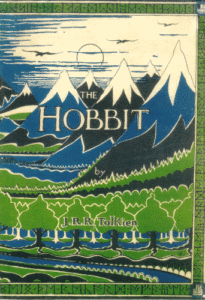
I remember finding a book with an intriguing cover one day and devouring it; racing back to find three more by the same author! Imagine my amazement decades later when I learned the single first book was actually an adaptation of three movies!
I remember those foreboding librarians; not quite at tough as the nuns at Our Lady of Perpetual Torture, but close. The library was always quiet and I reveled in that. It was only a few years ago I was diagnosed with Asperger’s and that helps explain why, in the bustle and constant sound of the Bronx, including the Dyre Avenue Line running a few blocks behind our house, that I sought out the quiet and dimness of the library. Plus the books. I devoured books as a child.
NYPL recently posted a page of librarian tattoos. Here’s the page for more, but below is a sample of people you’d not want to run into in a dark alley unless you had all your late fines paid up.

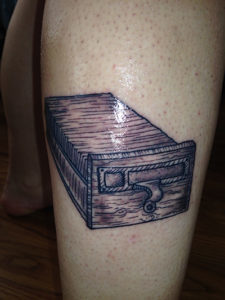
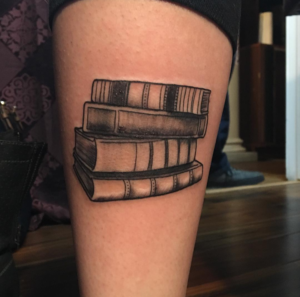
July 22, 2019
Why Does Propane Have An Odor?
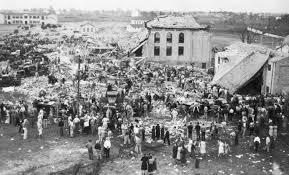
We know its in order to smell leaks, but what happened that someone realized this needed to be done?
A terrible disaster. Unfortunately, that is usually the case. But that is why there is a gift in every failure. So that we learn.
In this case, the event was the New London Schoolhouse explosion.
Propane doesn’t smell. It’s odorless in its natural state. But
if there is a leak, you smell a nasty odor.
Ever wonder why?
It would have been fortuitous if this
had been done as more and more buildings began to use propane and gas for
heating. But no one thought of doing it until they realized they had to.
Lessons learned that save lives later, often come at high cost.
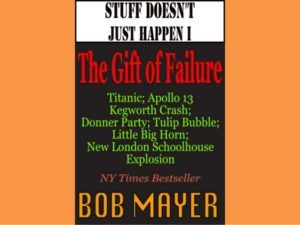
The Facts
On March 18, 1937, a gas leak was sparked, causing an explosion that killed approximately 293 students and teachers at the New London School in New London, Texas. It is still the deadliest school disaster in U.S. History.
The cascade events leading up to the explosio, and all the mistakes and bad decisions are in Stuff Doesn’t Just Happen: The Gift of Failure.
July 20, 2019
What was the most demanding military training you personally conducted?
Saw this question on Quora and it made me think. I went into Beast Barracks at West Point when I was seventeen and clueless. Then it seemed like my military career was filled with one more challenge after another as I sought them out.
First, once you’ve been through a getting hazed school and then served on cadre at one, you’re not as stressed by it because you know it’s a job on the part of the cadre, although there are occasionally sadists among the instructors. Interestingly, they were often the ones who screwed up the most as students and are venting.
For me, the key was high standards; not hazing.
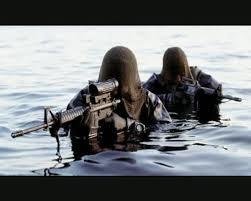
Danish Fromandkorpset Combat Swim School was when I was in the best shape of my life. We’d prepared hard, camping on an island off the coast of Maine for several weeks, swimming every day, running, doing PT, small boat drills etc. to get ready. My team sergeant ran that because he’d been through Dive School and later was NCOIC down there. When we arrived they simply told us the tasks we’d have to accomplish to graduate and then trained and tested us. What’s interesting is I didn’t even know how to swim when I went to West Point (not a big thing in the Bronx). I went through Rock Squad and survival swimming at the Academy. In Denmark we learned such things as dry suits aren’t. The North Sea is very cold in November. I remember we were doing a pier infiltration one night, moving very slowly and I heard this strange noise and finally realized it was someone’s teeth chattering. I credit my team sergeant, Dave Boltz (RIP) in that every team member graduated, which was rare.
Beast Barracks, Ranger, etc. were stressful. Lack of sleep, lack of food, someone always on you. The entire plebe year as West Point is intense. The #1 thing you learn is time management.
The school with the lowest graduation rate was jumpmaster because you had to score 100% because gravity always win. We started with 84 Special Forces qualified guys and graduated 17. I could probably still do a JMPI–inspecting a jumper.
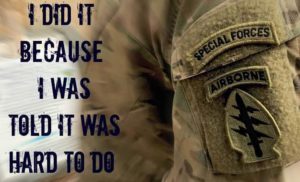
Mentally, Robin Sage, the last exercise in the Q-Course, was a mind-fuck. Lots of lose-lose scenario where the goal was to see how you thought on your feet. What makes the Q-Course special is that you cadre will be your team-mates down the line. So they take it damn serious.
July 18, 2019
When President Lincoln was reined in by
By The Jefferson Allegiance and a General named Grant. A document brokered by Jefferson and Hamilton against the future threat of a president run amok. That’s the core idea of the book. Most of it is a thriller set present day to track down the Allegiance, but there are flashbacks to when just the threat of it stopped presidents. Here is the second:
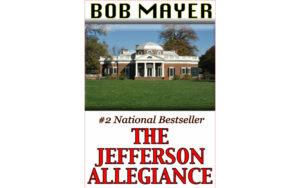
13 April 1865
Abraham Lincoln was tired to his core, and had told his secretary he
would not be seeing any more visitors today.
He sat in his office, eyes closed, hoping the headache that had troubled
him all day would go away. He should be
rejoicing, partaking in the fruits of a bitterly won victory.
Just ten days previously,
Richmond had fallen. Then four days ago,
Lee had surrendered his Army of Northern Virginia. The whereabouts of Jeff Davis and the
remnants of the Confederate government were unknown, but there was no doubt
they were in full flight.
The Civil War was over.
At a cost Lincoln could
hardly bear to contemplate. Ever since
the rebels had fired on Fort Sumter, four years and one day ago, the telegraph
wires had brought the grim numbers. Over
a quarter million Union soldiers dead.
No one knew how many Southerners, but given Grant and Sherman’s
ruthlessness the past year, Lincoln had no doubt the Confederate losses were
about the same.
What scared him, kept him
awake at nights and caused his current headache, was realizing that a larger
job loomed—mending a broken country. One
could win a war of arms, but it was the hearts and minds that concerned
Lincoln. There was much bitterness and
anger on both sides, and he knew he would have to walk a narrow and treacherous
path to bring the country together.
He’d laid the groundwork
years ago when he assembled his first cabinet:
what some had dubbed ‘the cabinet of rivals.’ He’d tapped three men, opponents for the
Republican nomination, and bitter enemies:
William Seward, Salmon Chase and Edward Bates to fill positions in his
administration as Secretary of State, Secretary of the Treasury and Attorney
General, respectively. The move had
shocked everyone in Washington, including the three men. They’d demurred initially, and Lincoln
recognized in them the same disdain others in the Capitol had for his rustic
background and lack of political experience, especially since he’d been sent
packing from Washington after only one term in Congress. Lincoln knew, though, that bringing the
country together after four years of war was going to take much more than
bringing respect and cooperation from three such strong egos. He also knew a few of the men were
Cincinnatians, a price he had been willing to pay to keep the country together.
Lincoln heard the private
door to the Oval Office open. There were
only five people who were allowed to come through that door. He hoped it was Mary, but the heavy clump of
boots informed him the hope was in vain.
More problems.
He opened his eyes and
relaxed slightly. The mighty
Ulysses. Still glowing from the
surrender at Appomattox. As always,
Grant held out a cigar as he settled into the seat across the desk from
Lincoln.
“No, thank you, General,”
Lincoln said, as always.
“The city is alive,
President,” Grant said. “You should go
out and pick up some of the energy. Bask
in the glow of victory.”
Lincoln grimaced. “Basking is not my forte.” Grant had two modes: in battle and energized, or morose and drunk. The drinking had been a large issue, but
Lincoln took results wherever he could find them. However, it was hard to tell which mode the
General was in this evening. Lincoln
could smell the alcohol, but Grant appeared strangely animated. Victory could do that, Lincoln supposed.
Grant fiddled with his
cigar, seemingly uncertain, something Lincoln had never seen in the man. His decisiveness had been his greatest
attribute. “Is there something amiss?”
Lincoln asked.
“Sir—“ Grant began, but
halted.
“Go on,” Lincoln said,
feeling his heart sink, knowing this was to be another burden of some sort.
“There was a meeting
earlier today,” Grant said. “I met with
the Chair and the Philosophers.”
Lincoln stiffened. “And?”
“They are very
concerned.” Grant had his eyes
downcast. “The war is over. Of that there is no doubt.” Grant lifted his dark gaze, meeting Lincoln’s
eyes. “I told them to wait. To let things settle down. But they wanted me to talk to you.”
Lincoln knew what Grant was
talking about, but he still felt a surge of anger. So soon.
He had not expected this so soon.
“I did not seek power for glory or riches. You know that better than most. I took the steps I did for the Union. And I didn’t hide them.”
Lincoln knew he had done
many things in violation of his oath of office and the Constitution. He’d unilaterally expanded the military;
suspended habeus corpus; proclaimed martial law; had citizens arrested; seized
property; censored newspapers; and, perhaps most galling to many, issued the
Emancipation Proclamation. All without
consulting Congress. He imagined old
Polk would be laughing heartily if he could have seen the events of the last
four years.
“I understand that, Mister
President,” Grant said. “That’s why I
have gotten the Chair to keep the Allegiance in hiding. I told him it would not be needed. Not now, nor in the future. Once peace has taken hold, I am sure we will
be back to where we were before the war.”
It will never be the same,
Lincoln thought, but did not say. He
pressed a long finger against his temple, trying to calm the pounding in his
head. “You are quite correct. The Allegiance will not be needed. I will relinquish all those extra powers I
have assumed in the name of the emergency as soon as the country returns to
normalcy.”
“And the Cincinnatians?”
“They too will be in
check. I needed their support for the
war, but not any longer.”
Grant heaved a sigh of
relief. “Very good, sir. I will tell the Chair.” Grant stood to depart.
“General.”
Grant turned. “Yes, sir?”
“Remember this
meeting. I once walked into this room
with the Allegiance years ago. You just
walked in with the threat of the Allegiance.
Some day if you sit in this room, remember what happened, and remember
the dangers of the power of this office and of the Cincinnatians.”
Grant removed the cigar
from his mouth and nodded. “I will,
Mister President.”
“Very good.” Lincoln remembered something. “Mary wants to go to the theater tomorrow
night. Would you and Missus Grant like
to join us?”
“I will consult with her,
but I see no reason why we would not.”
Grant turned for the door.
“Very good,” Lincoln said.
Grant paused as he opened
the door. “What theater, sir?”
“The Ford Theater.”
July 16, 2019
When President Polk’s Imperialism Was Reined In
By The Jefferson Allegiance and a Congressman named Lincoln. A document brokered by Jefferson and Hamilton against the future threat of a president run amok. That’s the core idea of the book. Most of it is a thriller set present day to track down the Allegiance, but there are flashbacks to when just the threat of it stopped presidents. Here is the first:
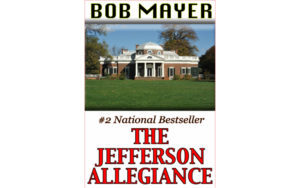
22 August 1848
President Polk figured it had to be a hell of a lot hotter down
south for the Mexican President than even Washington in the summer, although
some might question that. A bead of
sweat dripped off Polk’s nose and onto the copy of the Treaty of Guadalupe
Hidalgo which he had been reading one more time, savoring the terms, as if he
could feel the actual growth in the United States that the Treaty decreed.
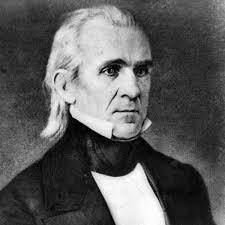
Polk was staying in the White House, an insane decision for anyone who had survived a Washington August. But there was work to be done, and even the specter of yellow fever couldn’t persuade Polk to head to the cooler mountains as most Washingtonians with means had done. He could hear the mooing of cows from the large open pasture to the south of the White House, and the occasional rattle of a passing carriage, but otherwise the capitol was still.
Polk turned his chair to a
map, his most prized possession since coming into office. He had made four promises when elected to
office and the map represented two of them:
-Acquiring some or all of
the Oregon Territory.
-Purchasing California from
Mexico in order to have access to the port of San Francisco to open trade to
the Pacific.
Drawn in fountain pen on
the map by his own hand were the successful results of those two promises: the Oregon Territory and a huge chunk of land
including Texas and the southwest from the Rocky Mountains to the Pacific
Ocean, encompassing all of the California Territory.
It was the second largest
expansion of the United States since Jefferson had purchased the Louisiana
Territory. It was Manifest Destiny and
Polk had done it, stretched the United States from Atlantic to Pacific. That he had done it with blood via a war some
considered imperialistic wasn’t something he concerned himself with.
Polk leaned back in his
chair and barely noticed as he wiped the sheen of sweat off his forehead. He looked over, irritated, as his secretary
cracked open the door and stuck his head in.
“Sir, there are some gentlemen here to see you.”
Polk waved. “Send them in.” He stiffened as he saw former President John
Quincy Adams leading three men into the room:
General Zachary Taylor, who was getting altogether too popular for
winning the war Polk had instigated with Mexico. There were more than whispers that Taylor
wanted to run for President under the banner of the opposing Whigs.
There was also a tall,
rangy freshman Congressman named Lincoln, who had been a minor thorn in Polk’s
side during the run-up to the war. The
press had dubbed him ‘Spotty’ Lincoln for the resolution he had tried to get
past Congress, demanding that Polk “show me the spot” where American blood had
been spilled that precipitated the War with Mexico, claiming it had happened on
Mexican soil, not American. The
resolution had failed, and Polk was determined to crush Lincoln’s political
career.
Lastly, there was old
General Winfield Scott, who had opened the way to the ‘Halls of Montezuma’ as
the press liked to dub it.
Polk stood, focusing on
Adams. “Sir, what brings you here?”
Adams had a black, wooden
tube in his hand, which he placed, to Polk’s chagrin, right on top of the
Treaty of Guadalupe Hidalgo. “Let me be
frank,” Adams said. “You began this most
horrid of wars by direct provocation of the Mexicans. Generals Taylor and Scott, while supporting
you publicly, verify that privately.”
Polk glared at the two
generals, but they seemed impervious.
Adams continued. “You used the war to further your Imperial
goals, which is inconsistent with our Constitution. And you are a front man for the
Cincinnatians.”
Polk slammed a fist onto
the map. “We now stretch from sea to
sea. We won the war. We—“
Adams cut him off. “Mister President, I don’t care what the
immediate results are. You manipulated
the military for the agenda of a select few.
As Congressman Lincoln noted, you declared war the way a monarch would,
not a President.”
“I dealt with the problems
I inherited with the office,” Polk argued.
“Texas was annexed by Congress four days before I took office. The Mexicans had already promised war if that
happened. Conflict was inevitable.”
“Not if you had used
diplomacy instead of the army,” Adams countered. “You sent General Taylor and his troops into
disputed territory without consulting Congress.”
“This is true,” Taylor
said.
“Indeed it is,” echoed
Lincoln.
“But Congress voted for
war,” Polk said.
“On the basis of a fake
‘causus belli’,” Lincoln said.
Scott finally spoke
up. “The army is sick of such a
war. We lost more men to disease in that
God-forsaken place than the enemy. It
cannot happen again.”
“How dare you all—“ Polk
began, but Adams cut him off.
“Read this, sir.” He picked up the wooden tube and screwed off
the end. He pulled a scroll out and
unrolled it on top of Polk’s map.
Polk leaned over and read
the few sentences. Startled, he looked
up at Adams. “What—“
“Look at the signatures,”
Adams commanded and Polk obeyed. Before
the current President could say anything, the former President continued. “The War is done. The treaty ratified. You’ve had your glory. You have a year left in office. You will not start another war. You will not violate the treaty to grab more
land from Mexico or cross swords with the British in the Oregon Territory. You will not run for election again. You will tell your fellow Cincinnatians they
have what they sought and that is enough.”
Taylor spoke up. “Or else we will enforce the Jefferson
Allegiance as you have just read.”
“Do you understand?” Adams
asked. “You will abide strictly by the
Constitution for the remainder of your term.
Clear?”
Polk weakly nodded,
slumping down into the chair where just minutes ago, he had been reveling in
his achievements. What they had just
dictated meant he would be the first President not to seek re-election since
the founding of the country. It was
unheard of. But so was the document he
had just read. He numbly watched as
Adams rolled the scroll and stuck it back in the tube. The men turned and marched out of the room
leaving the President alone.
President Polk grabbed the map and tore it to shreds.
July 15, 2019
Free Today: Survival Guide
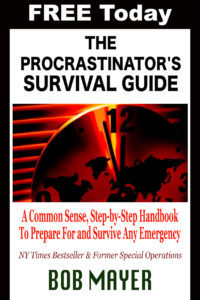
Given recent events, I’ve made The Procrastinator’s Survival Guide free today and tomorrow. It’s a step by step guide on how to prepare for all possible emergencies and natural/man-made disasters. It starts with the basics and builds from there. If you’ve had no idea where to start, this will get you going. It covers everything from earthquakes to hurricanes to flood, etcetera. 80% of Americans live in a county that has suffered a weather disaster in the past decade.
It also has checklists for basic preparation and then more advanced. The book contains links to all the gear mentioned, making it easier to get prepared. Everything mentioned is something I have used or have in my grab-n-go bags.
Also, the pre-order for Lawyers, Guns and Money is live. And New York Minute is now in Kindle Unlimited for those of you who are in that program.
July 13, 2019
Swarming Area 51?
There is a movement afoot for people to gather and “swarm” Area 51. It started as a Facebook joke but has since taken a life of its own.
I’ve been out to the Area 51 vicinity a couple of times. Once with a film crew from the Syfy Channel. The show had hired me as an Area 51 ‘expert’ given my Area 51 series of books have sold several million copies. Of course, my books are fiction. However, I will say 95% of whats in them is true. I just added a fictional reason WHY these things happened or exist.
I don’t think most of the people who have this fantasy of ‘swarming’ Area 51 really understand where it is or how isolated. It’s in the middle of nowhere. As I say in my books it’s in the middle of nowhere on the way to nowhere. You don’t even drive Extraterrestrial Highway, or Nevada 375 unless you want to go by Area 51.
One time I was driving out there with my wife and we hadn’t seen anyone for a long time coming the other way, then this car comes by looking like the one in Chitty-Chitty-Bang-Bang. Even the people were dressed era-appropriate. We figured they came through the time portals as described in my Time Patrol books.
My wife and I joke when we watch some documentary that I wrote about the subject matter, but it’s sort of true. The Area 51 series, now at 12 books, with three new ones out in the past year and more to come, literally rewrite the entire history of mankind. From before the dawn of history, through ancient Egypt to the present. I explain the Pyramids, the Sphinx, the Grail, the Ark of the Covenant, vampires, Excalibur, Jack the Ripper, Vlad the Impaler, the Great Wall of China, Devils Island, the Bermuda Triangle, Sir Burton’s lost manuscript, the Black Death, and on and on and on.
For those interested in this, here is the series page. AREA 51
For those interested in the history of Area 51, here you go:
The History of Area 51, from its founding to . . . from Bob Mayer
July 12, 2019
Today, In 1804, Alexander Hamilton Died in Greenwich Village
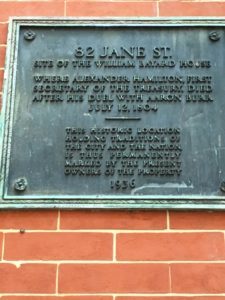
I used to stay in the basement of a brownstone on Jane Street in the Village when I visited my agent or publisher in NYC. One day I noticed a plaque on the wall of the building across the street.
And thus another piece of history was revealed to me. I wonder how many people who go down that street have seen it?
Hamilton was wounded in the duel. A round to the lower abdomen that caused extensive internal damage. He knew it was a fatal wound. He was rowed across the river and lasted 24 hours.
Another odd thing about the duel. Where it took place in Jersey (Exit 3 I believe) was the same place his son had been killed in a duel three years earlier.

I did a lot of research on Hamilton for The Jefferson Allegiance. My idea for the book was that Hamilton and Jefferson, fierce political opponents, agreed on one key thing: we had to prevent an imperial president. And they both believe the Constitution wasn’t adequate for the job. So they came up with The Jefferson Allegiance. In the book, I show historical incidents where this Allegiance is brought out to reel in wayward presidents. The plot is that there is a race on now between two groups to find it– one to destroy it, the other to save it.
In my latest book, New York Minute, the main character, Will Kane, lives in the basement of a brownstone across the street from this plaque.
I wrote this some years ago and it was a #2 national bestseller at Barnes and Noble. Sometimes fiction precedes fact.
Nothing but good times ahead. I hope.
July 11, 2019
Getting Out Of A Flooded Car!
With levees getting ready to crest in New Orleans and record rain on the way, this is important. Almost all of us live near water. Even those in desert areas know how quickly a flash flood can cut across a road.
Do you know how to get out of a sinking car? How to prepare for and deal with floods?
Here is a video on how to get out of a sinking car and below it is information about preparing for and dealing with floods.
STAY SAFE!
How to Prepare for and Deal with FLOODING from Bob Mayer
July 10, 2019
On Covers and the Importance of Title
Perhaps the biggest mistake I made early in my writing career involved titles. I’d never gone to a writing conference or had any classes on publishing. I was living overseas in the Orient, studying martial arts. This was pre-Internet– yes there was a time when we didn’t have access to the Internet. My sole publishing resource was an out of date Writers Marketplace from a library in the nearest military post, Camp Page (which no longer exists!).
No one, not my first agent, my first editor, my guardian angel, told me that title was critical. Years later I listened to Mary Higgins Clark talk about title and how it must gather attention and “invite readers into the book”. If only she’s been overseas studying martial arts nearby.
So I picked really stupid titles. I mean REALLY stupid.
A title must grab attention and/or let the reader know what the book is about. I decided to do neither. My first published book ended up being EYES OF THE HAMMER. (PS, it’s free on all eBook platforms) Even Cool Gus is rolling his eyes and it takes a lot for Cool Gus to use his muscles. It’s about Special Forces attacking drug labs in Colombia. Shortly after that book came out a guy named Tom Clancy released a book with a similar plot, but his was titled CLEAR AND PRESENT DANGER. Hmm.
I’m now writing precursors to my bestselling Green Beret series. They occur before EYES OF THE HAMMER. And DRAGON SIM-13. And my invented term SYNBAT. And my most genius title Z. Yep, just the letter. My wife says I’m a little slow at times.
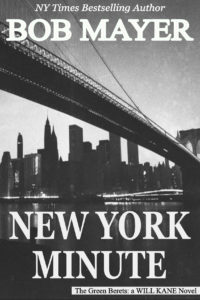
But I do learn. So the first book introducing my new character, Will Kane, is titled NEW YORK MINUTE. Which turns out to be quite brilliant as I’d actually chosen it before writing the book and then the term becomes a critical part of the book. You have to read it, but in the second scene and in the climactic scene, New York Minute plays a BIG role.
The second Will Kane book, now in editing, is LAWYERS, GUNS AND MONEY. Besides the fact I love Warren Zevon, the book actually revolves around lawyers, guns and money.
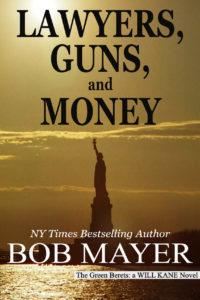
The third is WALK ON THE WILD SIDE. Yep, from Lou Reed’s second solo album in 1972, which is good timing since the first three books are set in 1977, New York City.
To be honest, I decided to use song titles because I’ve watched Bella Andre, Yo! Bella, have great success using some as titles with her Sullivan books. They resonate with people. Years ago, jokingly, I asked Bella how many Sullivan books there would be and she said some outrageous number and I thought she was joking, but hey, they’re still coming out and hitting the bestseller list, so check them out. She’s got Sullivans from Maine, from California, from Area 51, you name it. Those guys are everywhere.
I digress. Besides title, cover is key. Thumbnail has to pop in this day of ebooks. Here are two proposed ones for WALK ON THE WILD SIDE. As we say in da’ Bronx, whaddaya think? Preferences?


Nothing but good times ahead!



